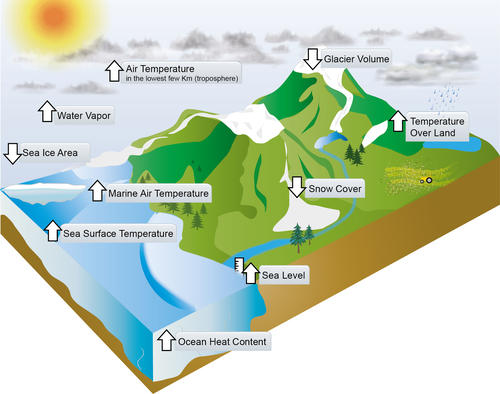Climate Change
Since the Fourth Assessment Report (AR4) of the Intergovernmental Panel on Climate Change (IPCC) became public in 2007, there has been no dearth of scientific evidence about global climate change. Atmospheric warming is unequivocally evident from observed increases in global average air temperatures, ocean temperatures, widespread melting of snow and ice and rising global average sea level.
Water is the first sector to be affected by changes in climate. Climate change leads to intensification of the hydrological cycle and subsequently it has serious effects on the frequency and intensity of extreme events. Sea level rise, increased evaporation, unpredictable precipitation, changes in average annual run-off, groundwater changes and prolonged droughts are just a few manifestations of climate variability directly affecting availability and quality of water.
To know more about the importance of addressing climate change manifestations in water management click here.
How can IWRM help?
In 2001, the IPCC recognized the potential of IWRM as a means of reconciling varied and changing water uses and demands and it appears to offer greater flexibility and adaptive capacity than conventional water resources management approaches.
Management measures have to be feasible, effective and acceptable. Measures for climate change adaptation through IWRM should form part of wider adaptation strategies and in the broader context of sustainable water management. Development policies have to be reviewed in relation to new climatic developments and it needs to be assessed whether these policies are still valid under new conditions. At local and national levels, capacities to cope with or adapt to climate variability can be addressed in the context of planning IWRM. Improving the way we use and manage water today will make it easier to address the challenges of tomorrow. (CAP-NET 2009)
To get informations about possible management measures click here.
